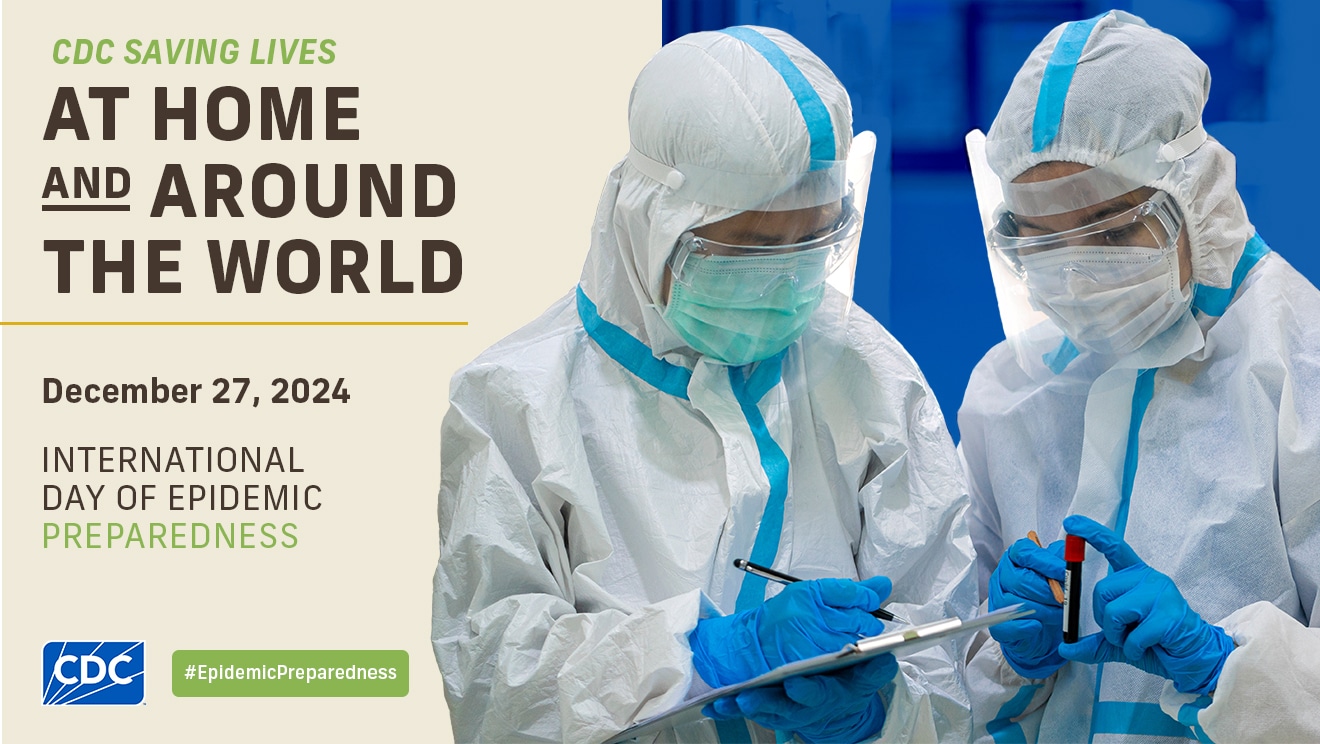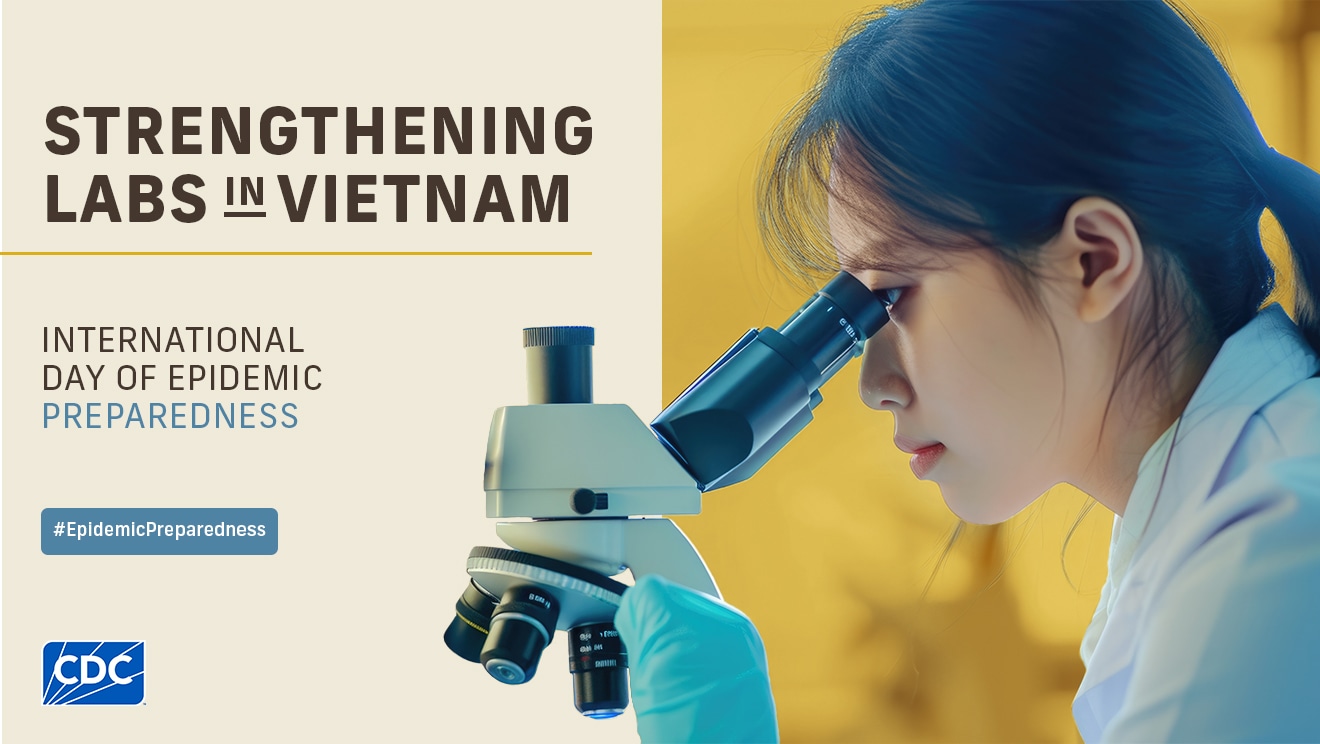At a glance
International Day of Epidemic Preparedness, observed on December 27, highlights the urgent need to invest in systems that can prevent, detect, and respond to infectious disease outbreaks. Explore stories of how CDC is working with countries and partners to strengthen public health systems, build resilience, and keep the world—and Americans—safe from health threats.
CDC: Saving Lives at Home and Around the World

On this International Epidemic Preparedness Day, CDC's Division of Global Health Protection highlights efforts to prevent, detect and respond to public health threats worldwide. Whether it's enhancing emergency response coordination, improving laboratory capacity, or speeding up outbreak detection and response, CDC is working with partners to stop health threats at their source before they spread. These efforts protect communities, prevent diseases from crossing borders, and advance global health security for all. Explore the stories below to see how CDC is helping build a safer, healthier world.
Expanding Kenya’s Emergency Centers
When COVID-19 struck Kenya, CDC and the nation's 47 counties joined forces to stop outbreaks faster by standing up sub-national Public Health Emergency Operations Centers. A cornerstone of preparedness and response, these Centers are places where highly trained experts monitor information on potential health threats, prepare for known (and unknown) public health events, and gather in the event of an emergency to exchange information and make decisions quickly.
Today, 25 new sub-national Emergency Operations Centers cover half of Kenya's population. Standing up these emergency centers at the sub-national level has changed the game for responders. Instead of working independently in isolation, county-level public health experts now have a home base tied to a strong national network – allowing them to manage any threat effectively and efficiently. To date, they have responded to over 100 public health events, extending beyond COVID to combat other diseases such as malaria, dengue, and rabies. These efforts are strengthening Kenya's ability to contain outbreaks locally, reducing the risk of diseases spreading regionally and globally.
Strengthening Labs in Vietnam

Vietnam has long tracked illnesses like influenza, but the COVID-19 pandemic highlighted a critical need to detect other respiratory viruses and respond to outbreaks faster.
In 2023, CDC partnered with Vietnam's Ministry of Health to enhance respiratory virus detection by building on existing flu surveillance. A pilot program at Bach Mai Hospital introduced advanced genomic sequencing equipment and trained local laboratorians in sequencing and data analysis, strengthening Vietnam's ability to identify and respond to health threats.
This effort has improved Vietnam's capacity to detect respiratory viruses, respond quickly to outbreaks, and reduce illness and deaths. By building local expertise and tools, Vietnam is better prepared for future challenges and helping prevent the spread of diseases beyond its borders—an important step in advancing global health security.
Speeding Sierra Leone's Response
The global 7-1-7 target is transforming pandemic preparedness with clear benchmarks. It calls for countries to detect outbreaks in 7 days, notify authorities in 1 day, and launch an early response within 7 days. At CDC, we are helping countries implement the 7-1-7 approach to improve early disease detection and response.
For instance, ten years after the devastating West Africa Ebola outbreak that claimed more than 11,000 lives, Sierra Leone has made significant strides in strengthening its public health systems needed for response. A recent 7-1-7 analysis of 16 outbreaks from 2020–2023 showed the country was able to detect outbreaks within seven days and notify authorities within one day.
While strides have been made, using this framework, CDC also identified that response times still averaged 63 days due to delays in lab confirmation. By using the 7-1-7 approach with CDC's support, Sierra Leone is strengthening its health systems and prioritizing resources to better prepare for future outbreaks. This work not only protects Sierra Leone but also helps stop the spread of diseases across borders, strengthening global health security and keeping Americans safe.
